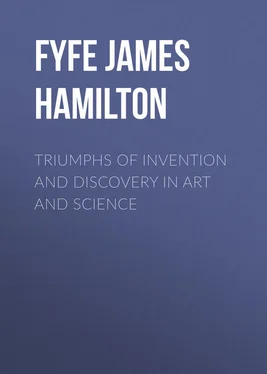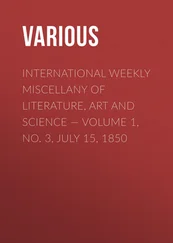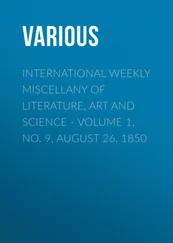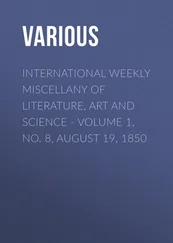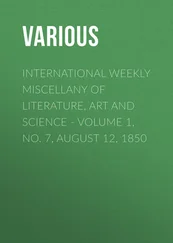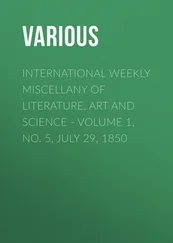James Fyfe - Triumphs of Invention and Discovery in Art and Science
Здесь есть возможность читать онлайн «James Fyfe - Triumphs of Invention and Discovery in Art and Science» — ознакомительный отрывок электронной книги совершенно бесплатно, а после прочтения отрывка купить полную версию. В некоторых случаях можно слушать аудио, скачать через торрент в формате fb2 и присутствует краткое содержание. Жанр: foreign_antique, foreign_prose, на английском языке. Описание произведения, (предисловие) а так же отзывы посетителей доступны на портале библиотеки ЛибКат.
- Название:Triumphs of Invention and Discovery in Art and Science
- Автор:
- Жанр:
- Год:неизвестен
- ISBN:нет данных
- Рейтинг книги:4 / 5. Голосов: 1
-
Избранное:Добавить в избранное
- Отзывы:
-
Ваша оценка:
- 80
- 1
- 2
- 3
- 4
- 5
Triumphs of Invention and Discovery in Art and Science: краткое содержание, описание и аннотация
Предлагаем к чтению аннотацию, описание, краткое содержание или предисловие (зависит от того, что написал сам автор книги «Triumphs of Invention and Discovery in Art and Science»). Если вы не нашли необходимую информацию о книге — напишите в комментариях, мы постараемся отыскать её.
Triumphs of Invention and Discovery in Art and Science — читать онлайн ознакомительный отрывок
Ниже представлен текст книги, разбитый по страницам. Система сохранения места последней прочитанной страницы, позволяет с удобством читать онлайн бесплатно книгу «Triumphs of Invention and Discovery in Art and Science», без необходимости каждый раз заново искать на чём Вы остановились. Поставьте закладку, и сможете в любой момент перейти на страницу, на которой закончили чтение.
Интервал:
Закладка:
Day and night, whenever he could spare an instant from his professed occupations, he devoted himself to the development of his great design. At night he could hardly sleep for thinking of it, and his hasty snatches of slumber were disturbed by agitating dreams. Tradition has preserved the story of one of these for us as he afterwards told it to his friends. He dreamt that, as he sat feasting his eyes upon the impression of his first page of type, he heard two voices whispering at his ear – the one soft and musical, the other harsh, dull, and bitter in its tones. The one bade him rejoice at the great work he had achieved; unveiled the future, and showed the men of different generations, the peoples of distant lands, holding high converse by means of his invention; and cheered him with the hope of an immortal fame. "Ay," put in the other voice, "immortal he might be, but at what a price! Man, more often perverse and wicked than wise and good, would profane the new faculty this art created, and the ages, instead of blessing, would have cause to curse the man who gave it to the world. Therefore let him regard his invention as a seductive but fatal dream, which, if fulfilled, would place in the hands of man, sinful and erring as he was, only another instrument of evil." Gutenberg, whom the first voice had thrown into an ecstasy of delight, now shuddered at the thought of the fearful power to corrupt and to debase his art would give to wicked men, and awoke in an agony of doubt. He seized his mallet, and had almost broken up his types and press, when he paused to reflect that, after all, God's gifts, although sometimes perilous and capable of abuse, were never evil in themselves, and that to give another means of utterance to the piety and reason of mankind was to promote the spread of virtue and intelligence, which were both divine. So he closed his ears to the suggestions of the tempter, and persisted in his work.
Gutenberg had scarcely completed his printing machine, and got it into working order, when the jealousy and distrust of his associates in the nominal business he carried on, brought him into trouble with the authorities of Strasburg. He could have saved himself by the disclosure of all the secrets of his invention; but this he refused to do. His goods were confiscated; and he returned penniless, with a heavy heart, to his native town Mentz. There, in partnership with a wealthy goldsmith named John Fust, and his son-in-law Schoeffer, he started a printing office; from which he sent out many works, mostly of a religious character. The enterprise throve; but misfortune was ever dogging Gutenberg's steps, and he had but a brief taste of prosperity. The priests looked with suspicion upon the new art, which enabled people to read for themselves what before they had to take on trust from them. The transcribers of books, – a large and influential guild, – were also hostile to the invention, which threatened to deprive them of their livelihood. These two bodies formed a league against the printers; and upon the head of poor Gutenberg were emptied all the vials of their wrath. Fust and Schoeffer, with crafty adroitness, managed to conciliate their opponents, and to offer up their partner as a sacrifice for themselves. By the zeal of his enemies, and the treachery of his friends, Gutenberg was driven out of Mentz. After wandering about for some time in poverty and neglect, Adolphus, the Elector of Nassau, became his patron; and at his court Gutenberg set up a press, and printed a number of works with his own hands. Though poor, his last years were spent in peace; and when he died, he had only a few copies of the productions of his press to leave to his sister.
Meanwhile, at Strasburg, some of his former associates pieced together the revelations that had fallen from him, while at the old monastery, as to his invention; and not only worked it with success, but claimed all the credit of its origin. In the same way, Fust and Schoeffer, at Mentz, grew rich through the invention of the man they had betrayed, and tried to rob of his fame.
There is a curious, but not very well authenticated story about a visit Fust made to Paris to push the sale of his Bibles. "The tradition of the Devil and Dr. Faustus," writes D'Israeli in the "Curiosities of Literature," "was said to have been derived from the odd circumstances in which the Bibles of the first printer, Fust, appeared to the world. When Fust had discovered this new art, and printed off a considerable number of copies of the Bible to imitate those which were commonly sold as MSS., he undertook the sale of them at Paris. It was his interest to conceal this discovery and to pass off his printed copies for MSS. But, enabled to sell his Bibles at sixty crowns, while the other scribes demanded five hundred, this raised universal astonishment; and still more when he produced copies as fast as they were wanted, and even lowered his price. The uniformity of the copies increased the wonder. Informations were given in to the magistrates against him as a magician; and on searching his lodgings, a great number of copies were found. The red ink, and Fust's red ink is peculiarly brilliant, which embellished his copies, was said to be his blood; and it was solemnly adjudged that he was in league with the Infernal. Fust at length was obliged, to save himself from a bonfire, to reveal his art to the Parliament of Paris, who discharged him from all prosecution in consideration of the wonderful invention."
The edition of the Bible, which was one of the very first productions of Gutenberg and Fust's press, is called the Mazarin, in consequence of the first known copy having been discovered in the famous library formed by Cardinal Mazarin. It seems to have been printed as early as August 1456, and is a truly admirable specimen of typography; the characters being very clear and distinct, and the uniformity of the printing perfectly remarkable. A copy in the Royal Library at Paris is bound in two volumes, and every complete page consists of two columns, each containing forty-two lines. The reader will recognize the appropriateness of the fact that from the first printing press the first important work produced should be a copy of God's Word. It sanctified the new art which was to be so fruitful of good and evil results – the good superabounding, and clearly visible – the evil little, and destined, perhaps, to be directed eventually to good – for successive generations of mankind. It was a fitting forerunner of the long generation of books which have since issued so ceaselessly from the printing press; books, of the majority of which we may say, with Milton, that "they contain a potency of life in them to be as active as those souls were whose progeny they are; to preserve, as in a vial, the purest efficacy and extraction of the living intellects that feed them."
Gutenberg's career was dashed with many lights and shadows, but it closed in peace. In 1465, the Archbishop-elector of Mentz appointed him one of his courtiers, with the same allowance of clothing as the remainder of the nobles attending his court, and all other privileges and exemptions. It is probable that from this time he abandoned the practice of his new invention. The date of his death is uncertain; but there is documentary evidence extant which proves that it occurred before February 24, 1468. He was interred in the church of the Recollets at Mentz, and the following epitaph was composed by his kinsman Adam Gelthaus: —
"Joanni Gesnyfleisch, artis impressoriae repertori, de omni natione et lingua optime merito, in nominis sui memoriam immortalem Adam Gelthaus posuit. Ossa ejus in ecclesia D. Francisci Moguntina feliciter cubant."
II. – WILLIAM CAXTON
During the last thirty or forty years of the fifteenth century, while printing was becoming gradually more and more practised on the Continent, and the presses of Mentz, Bamberg, Cologne, Strasburg, Augsburg, Rome, Venice, and Milan, were sending forth numbers of Bibles, and various learned and theological works, chiefly in Latin, an English merchant, a man of substance and of no little note in Chepe, appeared at the court of the Duke of Burgundy at Bruges, to negotiate a commercial treaty between that sovereign and the king of England; which accomplished, the worthy ambassador seems to have liked the place and the people so well, and to have been so much liked in return, that for some years afterwards he took up his residence there, holding some honourable, easy appointment in the household of the Duchess of Burgundy. This was William Caxton, who here ripened, if he did not acquire, his love of literature and scholarship, and began, from hatred of idleness, to take pen in hand himself.
Читать дальшеИнтервал:
Закладка:
Похожие книги на «Triumphs of Invention and Discovery in Art and Science»
Представляем Вашему вниманию похожие книги на «Triumphs of Invention and Discovery in Art and Science» списком для выбора. Мы отобрали схожую по названию и смыслу литературу в надежде предоставить читателям больше вариантов отыскать новые, интересные, ещё непрочитанные произведения.
Обсуждение, отзывы о книге «Triumphs of Invention and Discovery in Art and Science» и просто собственные мнения читателей. Оставьте ваши комментарии, напишите, что Вы думаете о произведении, его смысле или главных героях. Укажите что конкретно понравилось, а что нет, и почему Вы так считаете.
